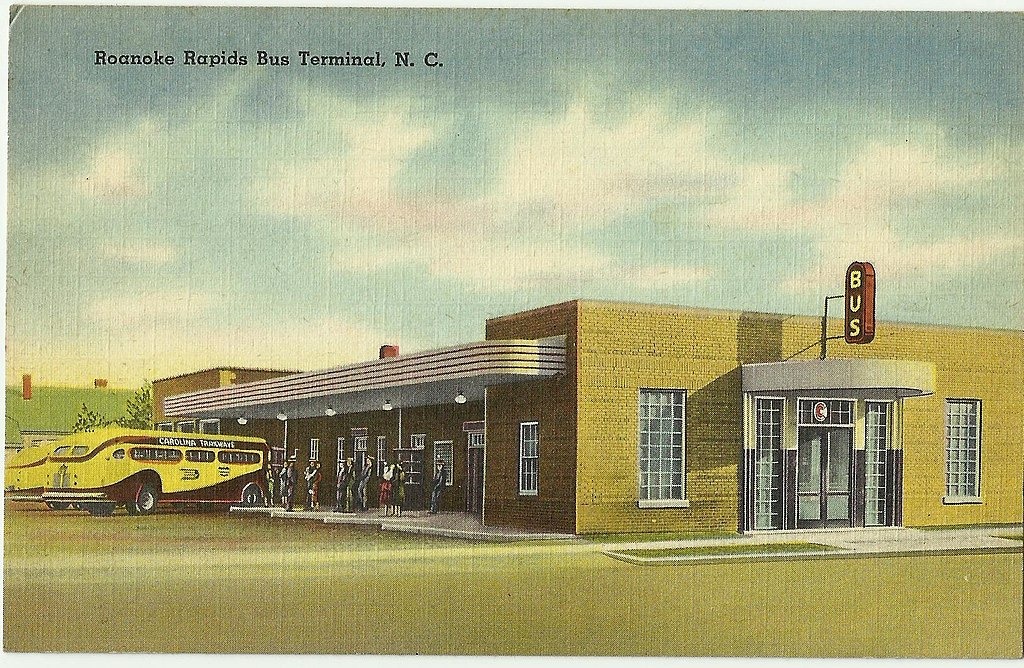Nearly 65 years after its ruling, the significance of a case that originated in Roanoke Rapids will be recognized by the state.
A historical marker application submitted for the case Keys v. Carolina Coach Company, which banned racial segregation in interstate transportation, was unanimously approved by the North Carolina Highway Historical Marker Commission this week.
“The committee was delighted to see the application,” said Ansley Wegner, administrator of the marker program under the state’s Department of Cultural and Natural Resources. “I am pleased that the landmark case is being brought out of the shadows. It’s important to recognize the North Carolina connection to the case that is of national significance.”

Rodney D. Pierce, a seventh-grade social studies and world history teacher in Nash-Rocky Mount Schools, applied for the marker in November.
This is the second marker Pierce, who formerly taught in Halifax County Schools, has applied for and had unanimously approved.
The first was in December 2018 for the late Enfield native Louis Austin, an African-American social justice activist and the editor-publisher of the Durham-based Carolina Times newspaper. “I’m delighted that the application was approved,” he said. “I will continue to conduct research on African-American history in eastern North Carolina to have it recognized by the state.”
The case was initiated by the arrest of then Women’s Army Corps Private First Class Sarah Keys — now Evans — in August 1952 at the old bus station on Roanoke Avenue.
Keys, a native of Washington, North Carolina, and dressed in her military uniform at the time, was convicted of disorderly conduct, fined $25 and jailed overnight for refusing to give up her seat on the bus to a white Marine. She filed suit against the bus company before the Interstate Commerce Commission, which decided in her favor in November 1955.
Pierce noted Keys would have been apprehended and jailed under the orders of then police Chief T.J. Davis. The central recreation center in Roanoke Rapids is named after Davis.
He said he applied for the marker to be a few feet from the site of Keys’ arrest as he was advised by Wegner that Roanoke Avenue is still a state highway.
A public art plaza honoring Keys is under construction in Martin Luther King Jr. Park, which is located at Wyche Street and Virginia Avenue.
“To have a mural highlighting Mrs. Keys-Evans in Martin Luther King Park across the street from the institution — Chaloner Middle School — that served African-American students in the area during school segregation makes somewhat of a statement,” Pierce said. “However, that location is obscure. What’s stronger is welcoming a historic marker on the main road of your city to recognize that the case that involved her, the case that outlawed racial segregation in interstate transportation, actually happened here. In my opinion, it demonstrates humility, bravery and that not only do you recognize this history, you’ve embraced it.”
The marker will read: KEYS V. CAROLINA COACH COMPANY
Landmark Interstate Commerce Commission case, 1955, helped end racial segregation in interstate transportation. Original arrest was here, 1952.
Pierce is the 2019 North Carolina Council for Social Studies Teacher of the Year. He is currently the Teacher Fellow for the North Carolina Equity Fellowship through the Center for Racial Equity in Education and a member of the Public School Forum’s Study Group XVII on rural education in the state.
Pierce was recently appointed to a three-year term on the Carolina Public Humanities Advisory Board and is part of the Department of Public Instruction’s K-12 Writing Team for eighth grade social studies.








